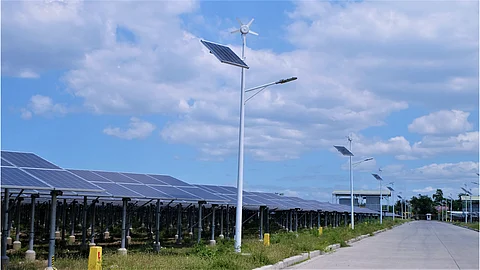

DOE in the Philippines moves to terminate 105 renewable energy projects
Failure to comply with project timelines is the reason cited, including for 53 solar facilities
Most of these contracts were awarded during 2017 and 2019, says the department
The Philippines Department of Energy (DOE) plans to process termination for at least 105 renewable energy projects, with a majority awarded in 2017 and 2019, for failing to comply with project timelines.
Out of these, 88 projects are either delayed in their pre-development timeline or not progressing at all. These include 53 solar, 17 hydropower, 10 wind, 5 geothermal, and 3 biomass power plants.
“Common reasons for project delays include failure to secure possessory rights or system impact studies (SIS) indicating inability to connect to the grid,” according to the department.
At the end of June 2024, the Philippines had awarded at least 1,435 service contracts with a potential renewable energy capacity of more than 156.7 GW of which 6.1 GW has already been installed. According to the International Renewable Energy Agency (IRENA), the Philippines operated 1.67 GW of solar PV capacity at the end of 2023.
In May this year, the DOE said more than 4 GW of new power generation capacity is set to come online in 2024 with almost 2 GW from solar energy (see Philippines Forecasts Nearly 2 GW New Solar Capacity In 2024).
In the Philippines, for existing solar energy service contracts, developers have 2 years to complete the pre-development stage, which involves securing permits, conducting surveys, performing feasibility studies and securing possessory rights. Failing to submit the declaration of completion (DOC) within the timeframe unless in the event of force majeure, the Renewable Energy Management Bureau (REMB) is obligated to recommend the termination of the contract. The developers will, nevertheless, be required to fulfill all financial obligations.
In June this year, the DOE released the revised omnibus guidelines to award and administer renewable energy contracts and registration of renewable energy developers. It says this process helps to filter out non-serious developers.
Obtaining a certificate of authority (COA) before signing a renewable energy contract is a significant change as part of the revised guidelines. This streamlines project timeline achievement as developers are needed to secure necessary permits and pre-feasibility activities before the official 25-year contract comes into force. For land-based solar PV projects, the COA is valid for 1 year, and for floating solar facilities 2 years.
